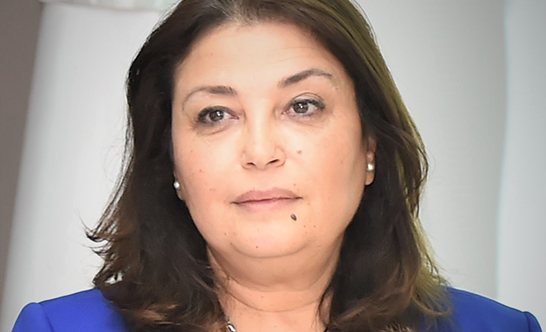EDITO
A Diversified program to meet the needs of the most vulnerable

Dr.Rym Fayala,Head of office, UNFPA Tunisia © UNFPA Tunisia.
It is with great pleasure that we share with you our newsletter for the 3rd quarter of 2021.
Another quarter filled with challenges, achievements and lessons learned. A time when we were able to collaborate with our partners to move towards the achievement of zero violence against women, zero preventable maternal mortality and zero unmet need for family planning by 2030 and to contribute to the implementation of the plan of action of the International Conference on Population and Development. We are proud to have been able to serve the most vulnerable: Girls and women victims of violence, migrants, people with disabilities, adolescents and young people.
In the fight of violence against women and gender equity, we continued to support care centers for women victims of violence and we also collaborated with the National Office of the Family and the Population in the training of 70 health personnel in the care of women and girl’s victims of sexual violence.
For our Reproductive Health agenda, UNFPA in collaboration with the Tunisian Association of Midwives, have made progress on the development of a manual of midwifery competencies. In addition, and as part of the implementation of the Maternal and Newborn health strategy, a group of 10 experts were trained on advocacy for the implementation of this strategy. We hereby announce the publication of the National Plan for Sexual and Reproductive Health 2021-2030 developed in partnership with the National Office for Family and Population.
The programs for young people were diversified, ranging from training on advocacy techniques for young people and staff of the Youth Observatory, to support for their participation and the celebration of their International Day focusing on youth entrepreneurship in relation to food security.
People with disabilities continue to be at the heart of our interest, in fact an analysis of their situation was made in collaboration with the Ministry of Social Affairs and IBSAR, and made it possible to identify their main needs, obstacles and opportunities, which will allow better support in future programming.
As for migrants, about 1,500 people were able to access information about their rights through awareness campaigns and about 1,000 benefited from Reproductive Health services.
You will find more details by reading our newsletter.
